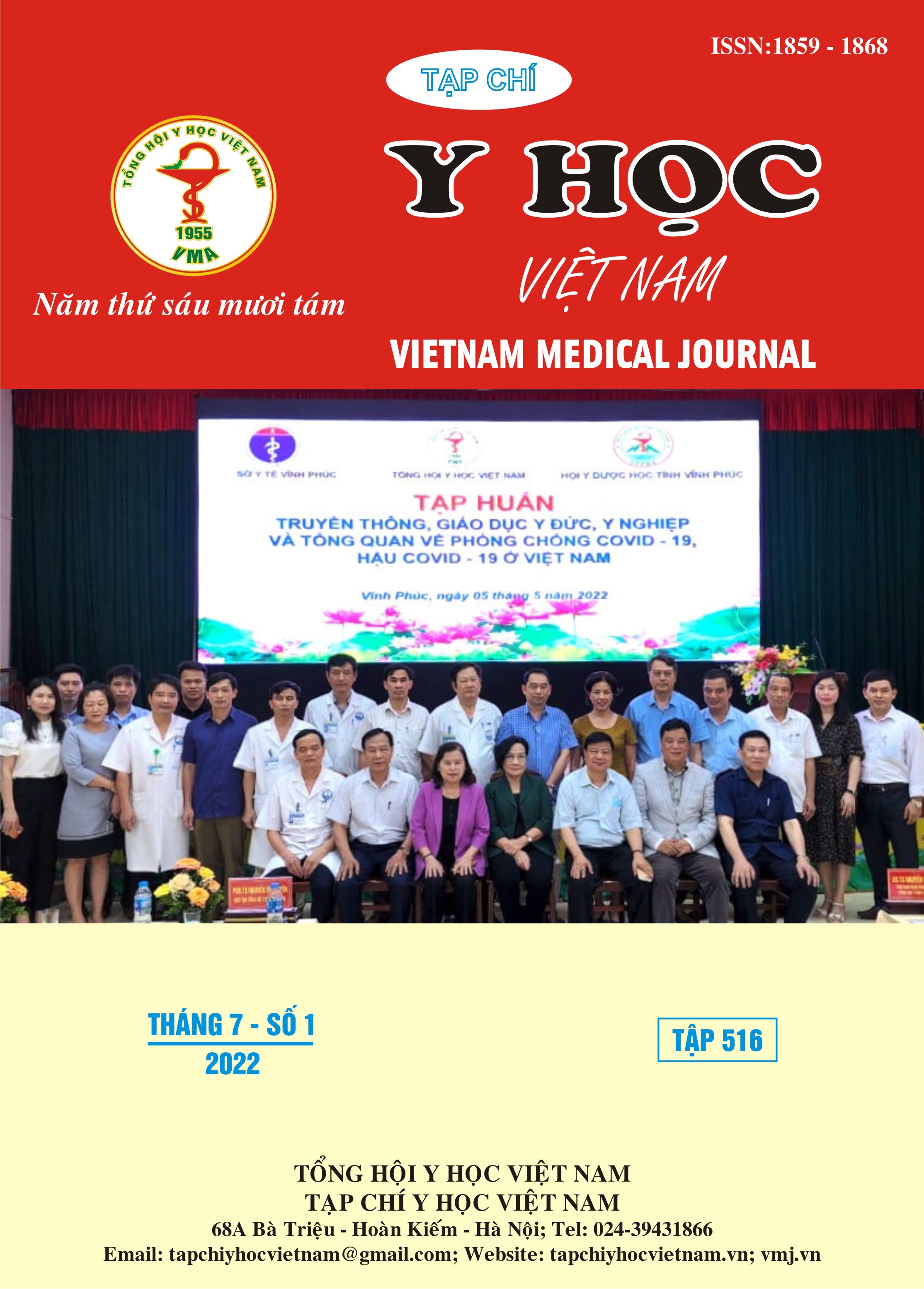TỶ LỆ VÀ MỘT SỐ YẾU TỐ LIÊN QUAN ĐẾN RỐI LOẠN GIẤC NGỦ Ở TRẺ RỐI LOẠN PHỔ TỰ KỶ
Nội dung chính của bài viết
Tóm tắt
Mục tiêu: Xác định tỷ lệ và một số yếu tố liên quan đến rối loạn giấc ngủ ở trẻ tự kỷ. Phương pháp nghiên cứu: nghiên cứu mô tả cắt ngang, sử dụng Chidren Sleep Habit Questionare (CHSQ) do cha mẹ báo cáo, khảo sát 117 trẻ tự kỷ 24 – 60 tháng tuổi tại Bệnh viện Nhi Trung ương. Kết quả: Tỷ lệ trẻ tự kỷ có rối loạn giấc ngủ là 81,2%. Trẻ tự kỷ có các yếu tố như mức độ tự kỷ nặng, đồng mắc rối loạn tăng động giảm chú ý, táo bón chức năng có tỷ lệ rối loạn giấc ngủ cao hơn những trẻ tự kỷ không có những yếu tố này. Các thói quen trước khi ngủ buổi tối như uống sữa trước khi đi ngủ, đặc biệt là uống lượng sữa ≥ 150ml, thời gian ngủ sau 21 giờ, bật đèn sáng khi đi ngủ, xem điện thoại/ipad/tivi trước khi ngủ đều liên quan đến tăng rối loạn giấc ngủ ở trẻ tự kỷ. Kết luận: Rối loạn giấc ngủ rất phổ biến ở trẻ tự kỷ. Điều này gợi ý rằng việc đánh giá các vấn đề về giấc ngủ và các yếu tố liên quan của rối loạn giấc ngủ nên là một phần trong chăm sóc toàn diện cho trẻ tự kỷ.
Chi tiết bài viết
Từ khóa
sleep disorders, children, autism
Tài liệu tham khảo
2. Dimitrios ID, Ververi A, Euthymia V. Childhood autism and associated comorbidities. Brain and Development, 2007.29(5):257-272.
3. Schreck KA, Mulick JA. Parental report of sleep problems in children with autism. J Autism Dev Disord, 2000.30(2): p.127-135.
4. Liu X, Julie AH, Ricard AF, et al. Sleep disturbances and correlates of children with autism spectrum disorders. Child Psychiatry Hum Dev, 2006. 37(2): p. 179-191.
5. Owens JA, Spirito A, Guinn MM. The Children's Sleep Habits Questionnaire (CSHQ): psychometric properties of a survey instrument for school-aged children. Journal of Sleep Research, 2000. 23(8):p.1043-1052.
6. Irwanto, Nancy MR, Hartini S, et al. Sleep problem of children with autistic spectrum disorder assessed by Children Sleep Habits Questionnaire-Abbreviated in Indonesia and Japan. Kobe J Med Sci, 2016. 62(2): p. E22-6.
7. Kimberly AS, James AM, Angela FS. Sleep problems as possible predictors of intensified symptoms of autism. Res Dev Disabil, 2004. 25(1): p. 57-66.
8. Katharine CR, Michelle P, Candice AA, et al. Parent-reported problematic sleep behaviors in children with comorbid autism spectrum disorder and attention-deficit/hyperactivity disorder. Res Autism Spectr Disord, 2017.39: p. 20-32.
9. Kodak T, Cathleen P. Assessment and behavioral treatment of feeding and sleeping disorders in children with autism spectrum disorders. Child and adolescent psychiatric clinics of North America, 2008. 17(4): p. 887-905.
10. Richdale A. Sleep in children with autism and Aspergers syndrome. APA PsycInfo, 2001:p.181-191


